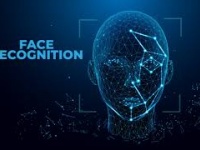-
Team TechTree
11:14 20th Jan, 2020
Clearview Gives Privacy Advocates a Big Jolt | TechTree.com
Clearview Gives Privacy Advocates a Big Jolt
The app is called Clearview and comes from a little-known developer Hoan Ton-That whose only notable contribution to the digital world has been an app that allows users to transpose Donald Trump’s golden mop to their heads. Today, the company is making news by claiming it brings technology that helps solve the hardest crimes.

Concerned about your privacy in the ever-expanding virtual world? Well, start looking for masks to wear as a little-known company is busy scraping billions of photographs from Google and Facebook on to a facial recognition application that is already finding favor with law enforcers from New York to Sydney and everywhere in-between.
The app is called Clearview and comes from a little-known developer Hoan Ton-That whose only notable contribution to the digital world has been an app that allows users to transpose Donald Trump’s golden mop to their heads. Today, the company is making news by claiming it brings technology that helps solve the hardest crimes.
The story of Clearview AI was first published by the New York Times two days ago with writer Kashmir Hill suggesting that US Federal and State law enforcement agencies admitting that they had used the app to clear-up cases involving identity theft, shoplifting, credit card fraud, murder and even heinous child sexual abuse cases.
On its website, Clearview says it “helps law enforcement to accurately, reliably and lawfully identify criminal suspects, as well as the victims upon whom they prey. Clearview's image search technology has been independently tested for accuracy and evaluated for legal compliance by nationally recognized authorities. It has achieved the highest standards of performance on every level.”
The company, which received a small funding from Facebook board member Peter Thiel, has claimed that Facebook is aware of the image scraping which is happening due to the inconsistent privacy laws governing AI tools. Also, there is the issue of state and federal laws not being in sync in the United States. Even if facial recognition tools are banned in a state, there is no restriction at the federal front that means such tools can be used.
The company claims that it only uses publicly available images and profile data that was available at one point in time, which puts it in sync with the existing legal framework. However, post the story in New York Times, Facebook claims that it would be going into how Clearview AI is using the data that it scrapes from Facebook users. Clearview has reportedly licensed its app to some companies handling security across establishment though details are unavailable.
However, none of the above is really as horrific as what the technology can end up doing. The NYT article quotes Eric Goldman, co-director of High Tech Law Institute of Santa Clara University to suggest that weaponization possibilities of the app are endless. “Imagine a rogue law enforcement officer who wants to stalk potential romantic partners, or a foreign government using this to dig up secrets about people to blackmail them or throw them in jail,” he is quoted as saying.
In fact, the author of the NYT article Kashmir Hill says when she began tracking the company, its website was a bare page with a non-existent Manhattan address. In spite of attempting to get in touch with founder Hoan Ton That, registered on LinkedIn as John Good, there was silence. At this point, Hill got police officers to run her photograph through the Clearview app at which point they received phone calls asking if they were talking to the media.
Which means that the company has the ability to monitor whom the law enforcement agencies are searching for! The question is would this be within the legal boundaries?
It is indeed intriguing that the company itself prefers to remain silent on the people behind the technology and asks users to request access to sign into the website, at which point one is asked to share one’s government email ID. There is a curt statement below saying that the company does not accept personal email IDs at this point in time. Quite weird that the company retains its privacy while it goes about messing it up for others.
The question is should Clearview AI be allowed to function and if so how could privacy be a guarantee anymore? Which is why we suggested using masks at the start of this blog post.
The other option is to follow security expert Joseph Steinberg’s Eleven Tips to Prevent Facial Recognition Technology from Identifying You!
TAGS: Clearview, Privacy, Data Privacy, Google, Facebook
- DRIFE Begins Operations in Namma Bengaluru
- Sevenaire launches ‘NEPTUNE’ – 24W Portable Speaker with RGB LED Lights
- Inbase launches ‘Urban Q1 Pro’ TWS Earbuds with Smart Touch control in India
- Airtel announces Rs 6000 cashback on purchase of smartphones from leading brands
- 78% of Indians are saving to spend during the festive season and 72% will splurge on gadgets & electronics
- 5 Tips For Buying A TV This Festive Season
- Facebook launches its largest creator education program in India
- 5 educational tech toys for young and aspiring engineers
- Mid-range smartphones emerge as customer favourites this festive season, reveals Amazon survey
- COLORFUL Launches Onebot M24A1 AIO PC for Professionals







TECHTREE